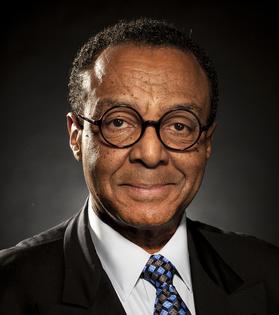Supreme Court Ethics? More Than ‘Balls and Strikes’
Is the Supreme Court ready for reform yet?
That’s my updated version of the immortal declaration that legendary alderman and saloonkeeper Mathias “Paddy” Bauler reportedly delivered on the night of Richard J. Daley’s first election as Chicago’s mayor in 1955: “Chicago ain’t ready for reform yet.”
I asked myself the same question of the Supreme Court when I heard Sen. Dick Durbin, an Illinois Democrat and chair of the Senate Judiciary Committee, call for the justices to adopt a potentially mighty reform that they traditionally have opposed: a code of ethics.
All other federal judges have one. So do many of us in the private sector. Why, asks Durbin, not the nation’s highest court?
A long time proponent of such a code, Durbin ramped up scrutiny of the nation’s highest court after ProPublica reported a big freebie enjoyed by Justice Samuel Alito. He reportedly went on a free luxury fishing trip with hedge fund billionaire Paul Singer in 2008 without disclosing the flight on disclosure forms — or recusing himself from at least 10 cases that the businessman later had in front of the court.
That’s about as helpful to public trust as Bauler’s celebration.
But Alito, in an unusual display of proactive public relations, preempted the ProPublica report with an op-ed in The Wall Street Journal hours before its release, insisting that “I had no obligation to release in any of the cases that ProPublica cites.”
Thomas, too, insisted that he followed the rules regarding social occasions as he had been instructed at the time.
Tell it to the judge, I say. But, of course, since the justices serve on the highest court in the land, they largely would be pleading to themselves.
The Alito revelation followed earlier ProPublica reports that Justice Clarence Thomas had received, among other favors, luxury travel and resort stays from Republican megadonor Harlan Crow.
ProPublica reported that Crow also had bought from Thomas a home where the justice’s mother still lives, and that Crow paid for the great-nephew of Thomas — whom the conservative justice raised as a son — to attend a private boarding school.
Thomas did not declare any of that before siding with the Supreme Court’s conservative majority in major rulings, including the reversal of Roe v. Wade, the decision that legalized abortion.
He has said he was informed beforehand that his relationship with Crow did not violate existing social rules and guidelines. The Guardian has also reported that Crow had business before the Supreme Court during his deep friendship with Thomas.
All of these suspicions, and more, arise as public approval of the nation’s highest court has fallen to an all-time low in the run-up to the one-year anniversary of the court’s highly controversial decision to overturn Roe v. Wade, according to a Quinnipiac University poll released Wednesday.
The poll found only 30% of registered voters approved of the nation’s highest court, while 59% disapproved. That’s the high court’s lowest approval rating since Quinnipiac started asking the question in 2004.
Only 10% of registered Democrats surveyed said they approved of the Supreme Court, compared with 53% of registered Republicans.
Almost 7 in 10 registered voters said they thought the Supreme Court is “mainly motivated by politics” — compared with a fourth who said it is “mainly motivated by the law.”
“The law” is what we should hope every sensible and principled justice would say, regardless of their personal leanings.
The proper role of a Supreme Court justice, as Chief Justice John Roberts famously said in his own confirmation hearings, is “to call balls and strikes, and not to pitch or bat.”
Sure. But as my sports reporting colleagues point out, subtle but distinctly important standards vary with the umpire. They use different strike zones, for example, apply them flexibly, and have near-unlimited discretion in close calls.
What may seem like simple differences can lead to a heartbreaker by the end of the game. Judges, like umpires, have tremendous power in deciding close calls. For the sake of their own credibility, they should work with the rest of us to assure that we can have the best, most credible justice system possible — not just the best that money can buy.
========
(E-mail Clarence Page at cpage@chicagotribune.com.)
©2023 Clarence Page. Distributed by Tribune Content Agency, LLC.
(c) 2023 CLARENCE PAGE DISTRIBUTED BY TRIBUNE MEDIA SERVICES, INC.



























Comments